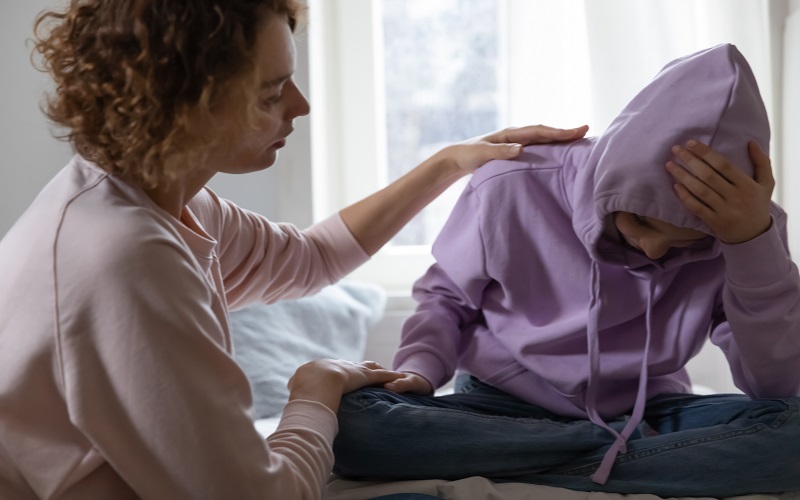
Adapted from an announcement by the Washington State Department of Health
New data from the Washington State Department of Health’s behavioral health group shows that more young people are seeking medical help for emotional distress. DOH urges families, educators, mentors and youth advocates to know the warning signs that signal when a child or teen is in crisis, and to talk with a healthcare or primary care provider for behavioral health support resources.
Based on early data gathered by DOH, more youth ranging in age from 5 – 17 are seeking emergency medical assistance for suicidal ideation, suspected suicide attempts, psychological distress and suspected overdoses.
Emergency departments across the state are also reporting that significant percentages of their ED capacity are for youth who are there for behavioral health crises. Further, because the Delta variant triggered a repeat of the many impacts initially experienced at the start of the pandemic, we may be experiencing a “secondary disillusionment” phase over the next few months. For many children and youth specifically, the secondary disillusionment phase is occurring alongside significant school, family and social stressors. Common symptoms include social withdrawal, problems at school and challenging behaviors at home. Symptoms like these or other significant changes in behavior, like aggression, impulsive or dangerous behaviors, isolation or withdrawing from activities, may signal distress and a need for behavioral health support.
We all play a key role in supporting the behavioral and emotional wellbeing of our children and youth. Here are things you can do:
- Check in with your friends and family members. It is a good idea to see how people are doing, and if you have the emotional capacity to support them, engage in active listening to learn more about how they are doing and what they are experiencing. Active listening is listening to another person for the purpose of understanding their experience and expressing care—you aren’t trying to fix anything or solve a problem. Start by asking open-ended questions (i.e. What emotions are coming up for you? How did that event make you feel?) and focus on increasing your understanding of their experiences.
- Ask gently, but directly, about suicidal thinking or behaviors. Asking a youth doesn’t increase their risk, but reduces their risk because it helps that person get the support they need.
- Talk to your primary care provider. They can lead you into next steps as needed.
- Adopt healthy habits. Support your youth or teen in adopting healthy sleep habits, good nutrition and regular exercise.
- Practice and encourage ‘active coping.’ Avoiding things that make us anxious tends to make the anxiety worse. Work with children and youth to safely express their concerns. Start by supporting them in creating, and then using a list of ‘go-to’ coping skills that work for them. Examples can include spending time outside, baking, listening to music, watching a favorite show or doing something kind for a neighbor.
Additional Resources
- Visit coronavirus.wa.gov/wellbeing for crisis support and self-care resources for you and the people you care about. It includes links to help lines such as Teen Link, WA Listens, Crisis Text Line, and the Suicide Prevention Lifeline.
- Visit A Mindful State for resources, tips, and personal stories from leading mental health experts in the state and community members working through the emotional health consequences of the pandemic.
- Watch Recognizing and Preventing Suicide in our Youth: Kari Tanta, PhD, addresses the risks and signs for suicide, and offers steps that parents and caregivers can take to help their loved ones. She also shares her personal perspectives about what it is like as a parent currently experiencing these concerns in her own family.
- Watch Supporting Your Loved Ones: Suicide Prevention: Listen and learn from Valley psychotherapist Lonnie Renteria, LHMC, as he answers questions about how the pandemic has affected teens and young adults, including an increase in suicidal thoughts and attempted or completed suicides. Learn about warning signs to look for and steps you can take to help.
- Check out this multicultural mental healthcare guide for teens created by Seattle-area youth. It includes Asian Counseling and Referral Service youth mental health counseling program, Black Girls Smile, Consejo Counseling and Referral Service, Muslim Behavioral Health Network, and WA Therapy Fund, which helps fund free therapy to members of the Black community.

